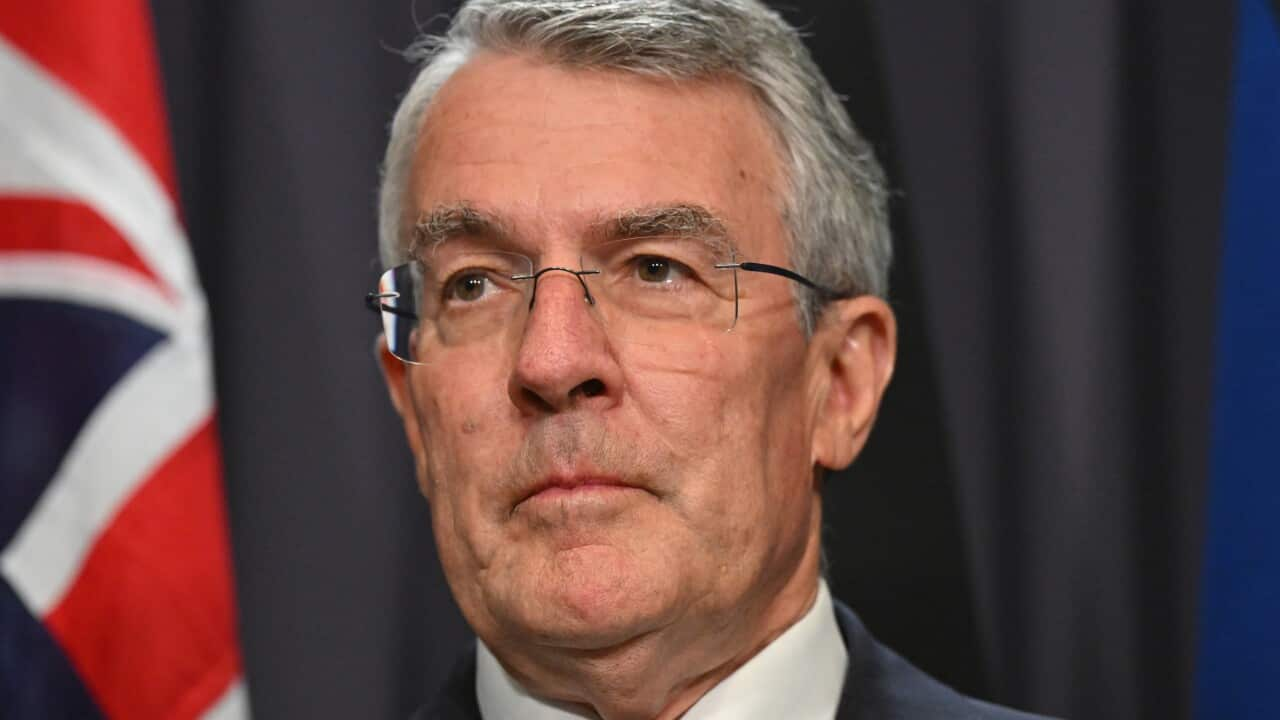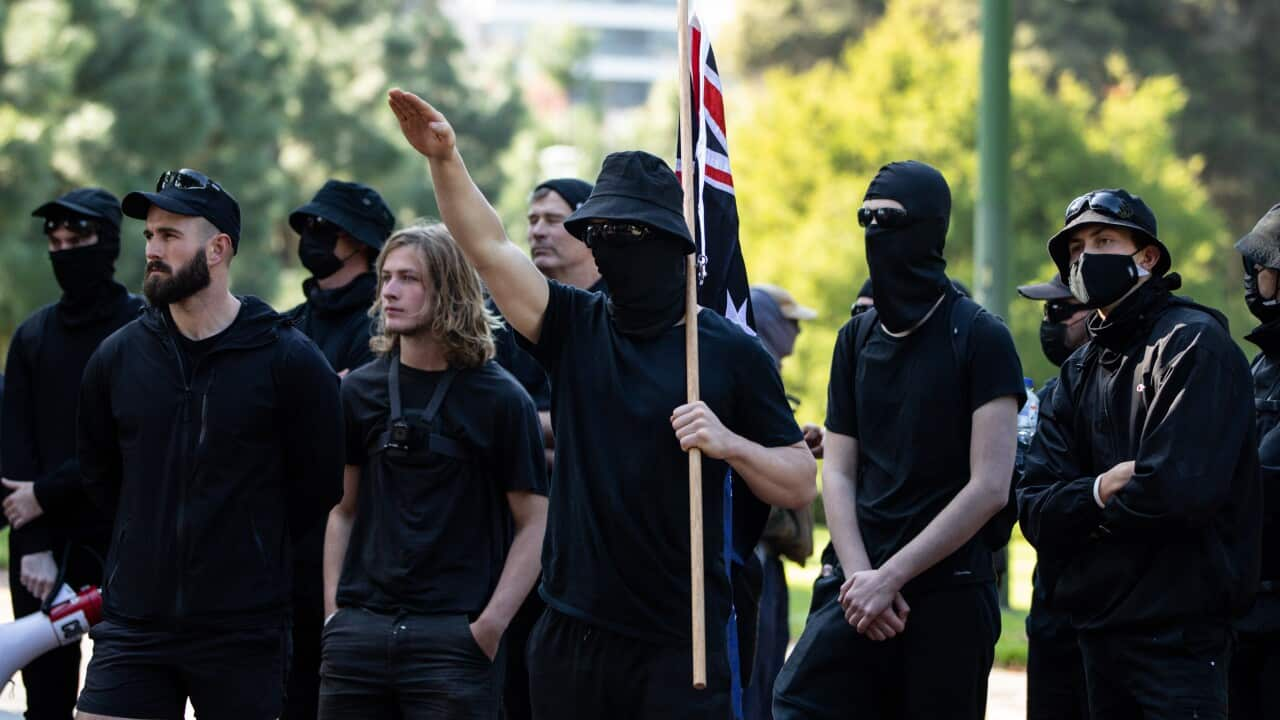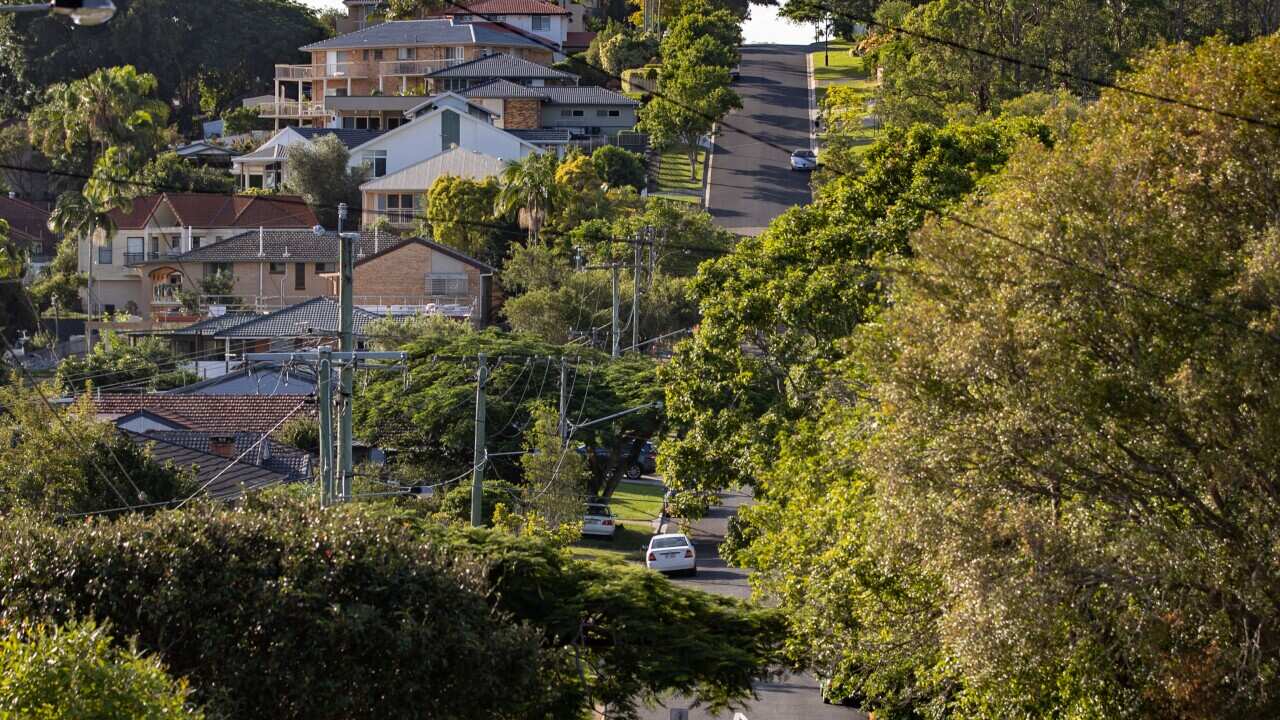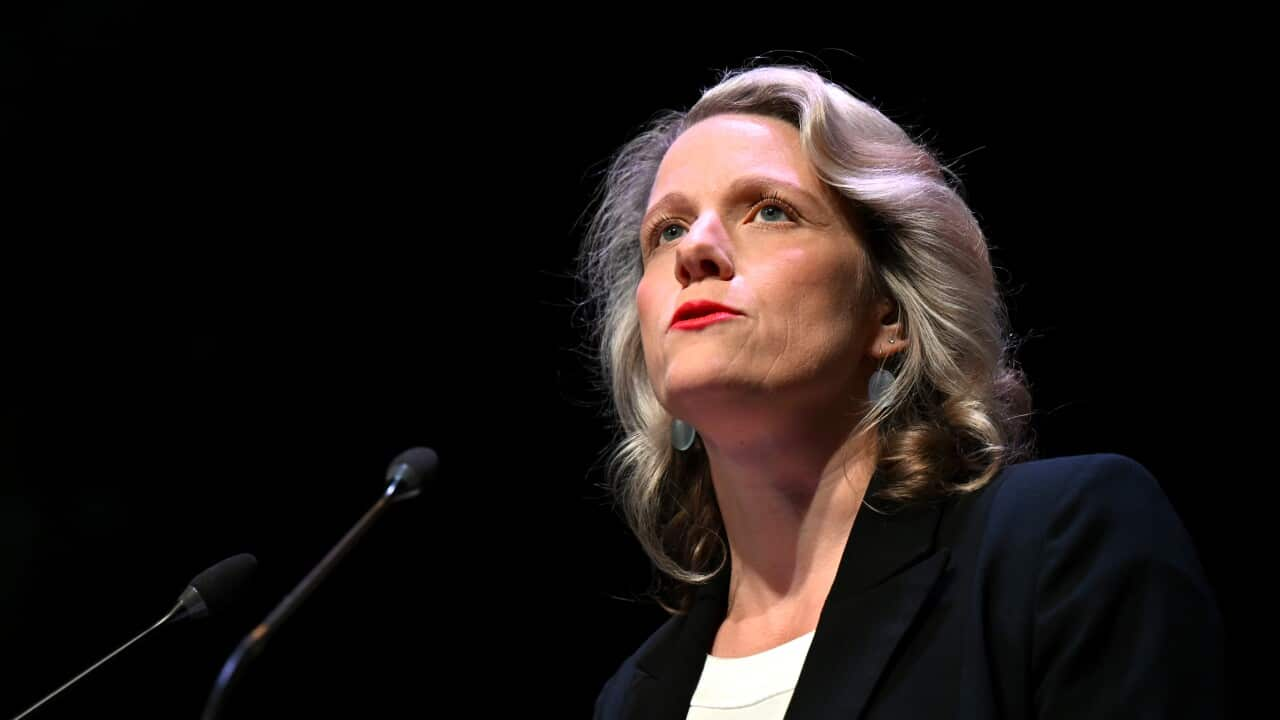KEY POINTS:
- The federal government is moving to ban Nazi symbols in public.
- The display or sale of a number of symbols will be outlawed.
- There will be journalistic, educational, and religious exemptions.
People who display Nazi symbols in public or online will face up to 12 months in jail, following in central Melbourne.
Jewish groups have welcomed the federal government's announcement that it will introduce a bill to parliament next week, seeking to ban the display or trade of a handful of Nazi symbols.
It comes just months after the far-right group the National Socialist Network performed the Nazi salute - known as the Sieg Heil - as they rallied on the steps of the Victorian Parliament.
While the federal government says banning the salute is a matter for state and territory governments, it has moved to outlaw two infamous symbols - the Hakenkreuz, or the traditional swastika symbol appropriated by the Nazi party, and the SS bolts - in public and online.
Profiting by trading Nazi memorabilia will also be outlawed, though private ownership will remain legal.
Those in breach will face up to a year behind bars.

The new laws follow just months after a far-right group performed the Nazi salute during a rally on the steps of the Victorian Parliament. Source: AAP / David Crosling
Bans will come with some exceptions
Attorney-General Mark Dreyfus described the bill as "well-targeted and effective", saying it was the result of careful consultation with law enforcement and victims of racial hatred.
"There is no place in Australia for symbols that glorify the horrors of the Holocaust," Mr Dreyfus said in a statement.
"And we will no longer allow people to profit from the display and sale of items which celebrate the Nazis and their evil ideology."
Labor rejected a Coalition spontaneous push to ban Nazi insignia in March, instead putting the idea to a parliamentary inquiry to ensure unforeseen impacts were avoided.
Its bill will make exceptions for journalists, academics, and educational facilities - like museums.
A spokesperson for Mr Dreyfus said the ban would apply to any symbol which "could be mistaken" for the Nazi hakenkreuz, with prosecutions and convictions a matter for police and the courts.
Because the swastika continues to be used as a symbol of divinity in various religions - including Hinduism, Buddhism, and Jainism - there will also be a religious exemption.
"We have consulted with these communities to ensure nothing in these laws will impinge on the use, or display of these symbols in association with those religions," Mr Dreyfus said.
Anti-Defamation Commission chair Dvir Abramovich welcomed the news, saying a "terrible wrong has been made right".
"I never lost faith that this fateful day will come to pass and did shed tears of joy," he said.
"This is history in the making, a joyful and profound moment that represents the culmination of a six-year personal campaign to defeat homegrown neo-Nazis who seek to keep Hitler’s legacy alive."
Colin Rubenstein, executive director of the Australia Israel and Jewish Affairs Council, said Nazi symbols were used to "frighten, intimidate, and hurt" their targets.
"Nazi symbols are universally recognised messages of hate and genocide," he said.
"The bill is particularly welcome at a time when anti-Semitism is rising globally and, frighteningly, moving into mainstream discourse in numerous different ways."
But Bill Swannie, Australian Catholic University human rights expert, said the bill did nothing to redress victims of hate speech, saying anti-vilification laws were powerful but underused.
"There's good evidence that laws prohibiting specific symbols provides these extremists with a platform," he said.
"The proposed criminal laws ... are an exercise in political posturing and empty symbolism."
After being introduced to parliament, Labor's legislation will be reviewed by parliament's Joint Committee on Intelligence and Security.

Private ownership of Nazi memorabilia will continue, but profiting from its sale will be illegal. Credit: Getty Images
Mr Burgess said "ideologically-motivated" extremism - almost entirely made up of neo-Nazis and racists - accounted for roughly 30 per cent of ASIO's counter-terror workload.
"What we worry about the most is people who join the group, or get drawn into that ideology, and are not satisfied [that] there is no action and they go off and do it by themselves," he said.
NSW imposed a $100,000 fine and year-long jail terms for displays of Nazi symbols in August, becoming the second state - after Victoria - to do so.
Clarification: This article has been amended to make it clear the Hakenkreuz symbol is subject of the ban.










